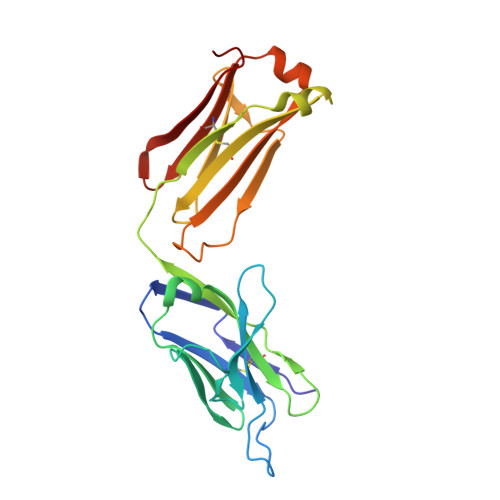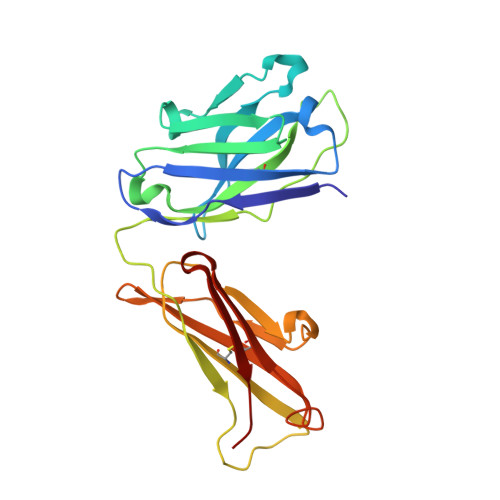Germline antibody recognition of distinct carbohydrate epitopes.
Nguyen, H.P., Seto, N.O., MacKenzie, C.R., Brade, L., Kosma, P., Brade, H., Evans, S.V.(2003) Nat Struct Biol 10: 1019-1025
- PubMed: 14625588
- DOI: https://doi.org/10.1038/nsb1014
- Primary Citation of Related Structures:
1Q9K, 1Q9L, 1Q9O, 1Q9W, 3SY0, 3T4Y, 3T65, 3T77 - PubMed Abstract:
High-resolution structures reveal how a germline antibody can recognize a range of clinically relevant carbohydrate epitopes. The germline response to a carbohydrate immunogen can be critical to survivability, with selection for antibody gene segments that both confer protection against common pathogens and retain the flexibility to adapt to new disease organisms. We show here that antibody S25-2 binds several distinct inner-core epitopes of bacterial lipopolysaccharides (LPSs) by linking an inherited monosaccharide residue binding site with a subset of complementarity-determining regions (CDRs) of limited flexibility positioned to recognize the remainder of an array of different epitopes. This strategy allows germline antibodies to adapt to different epitopes while minimizing entropic penalties associated with the immobilization of labile CDRs upon binding of antigen, and provides insight into the link between the genetic origin of individual CDRs and their respective roles in antigen recognition.
- Department of Biochemistry, Microbiology and Immunology, University of Ottawa, 451 Smyth Road, Ottawa, Ontario K1H 8M5, Canada.
Organizational Affiliation:


















